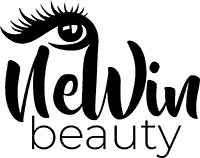When it comes to enhancing one’s eyelashes, there are varying perspectives from different religions that influence individuals’ decisions. In this blog post, we research into the religious viewpoints surrounding the practice of eyelash enhancements. While some religions may see it as a harmless beauty enhancement, others may consider it controversial due to potential ethical implications. It is crucial to understand the religious teachings and beliefs that shape attitudes towards eyelash enhancements, as these can impact personal choices and societal perceptions. By examining the ethical considerations and cultural norms associated with this beauty trend from a religious standpoint, we gain insight into the diversity of opinions that exist within different faiths.
Key Takeaways:
- Religious opinions: Different religious perspectives vary on the permissibility of eyelash enhancements.
- Islam: Some Muslim scholars consider eyelash extensions permissible as long as they are not to deceive others.
- Christianity: Views in Christianity are diverse, with some denominations allowing eyelash enhancements while others may see it as vanity.
- Judaism: Jewish interpretations may permit eyelash enhancements if done for medical or modesty reasons.
- Morality: Many religious teachings emphasise the importance of modesty and not altering one’s appearance to deceive others.
- Intentions: The intention behind getting eyelash enhancements often plays a crucial role in determining its permissibility from a religious standpoint.
- Personal conviction: Ultimately, individuals should consult their own religious authorities and make decisions based on their faith and beliefs.

Ethical Considerations
When it comes to eyelash enhancements from a religious perspective, there are various ethical considerations to take into account. Religious beliefs play a significant role in determining what is considered acceptable or unacceptable in altering one’s physical appearance. It is crucial to research into these ethical considerations to understand the implications of enhancing eyelashes in the context of different faiths.
Natural vs. Artificial Beauty
In the debate between natural and artificial beauty, religious teachings often highlight the importance of embracing one’s natural state and avoiding altering one’s appearance through artificial means. Enhancing eyelashes artificially can be seen as going against the natural beauty bestowed upon an individual by a higher power. Some religions advocate for the acceptance of one’s physical features as they are, without manipulation or enhancement.
On the other hand, some religious perspectives allow for modest enhancements to one’s appearance to boost confidence or maintain personal hygiene. It is essential to strike a balance between enhancing one’s features modestly and going to extremes that may be considered vain or disrespectful towards the natural state of the body.
Modesty and Vanity in Religious Doctrine
Within religious doctrine, modesty is often highly valued as a virtue that guides personal behaviour and appearance. Enhancing eyelashes purely for vanity purposes may be frowned upon in some religious communities as it can be perceived as excessive pride or a deviation from modesty. It is crucial to consider the motivations behind seeking eyelash enhancements and whether they align with the values of modesty upheld by one’s faith.
Vanity, defined as excessive pride in one’s appearance or achievements, is cautioned against in many religious teachings. While there is a distinction between enhancing one’s features for self-care and grooming purposes and indulging in vanity, individuals are encouraged to approach eyelash enhancements with a sense of humility and gratitude for their natural beauty.
Specific Religious Views
Christianity and Cosmetic Enhancement
Christianity’s view on cosmetic enhancement is a topic of debate within the faith. Some Christians believe that altering one’s physical appearance through procedures like eyelash enhancements can be seen as a way of enhancing God’s creation, while others argue that it goes against the natural beauty and uniqueness that God has bestowed upon each individual. Those in favour of cosmetic enhancements often cite the importance of feeling confident and comfortable in one’s own skin as a valid reason for such procedures.
Ultimately, the stance on eyelash enhancements in Christianity varies depending on individual beliefs and interpretations of religious teachings. While some denominations may be more accepting of cosmetic procedures, others may view them as contrary to the values of natural beauty and accepting oneself as God intended.
Islam and the Concept of Halal Beauty
In Islam, the concept of Halal beauty emphasises the importance of maintaining one’s appearance in a way that is considered permissible according to Islamic teachings. This includes practices that are not harmful or forbidden, such as using natural products and following hygiene practices. When it comes to eyelash enhancements, the permissibility may depend on the ingredients used and whether the procedure aligns with the principles of modesty and respect towards one’s body.
Islamic scholars may provide guidance on whether specific cosmetic enhancements are Halal or Haram (forbidden) based on the ingredients, intentions, and consequences of such procedures.
It is essential for Muslims considering eyelash enhancements to seek advice from knowledgeable individuals within the Islamic community to ensure that their choices align with the teachings of Islam.
Judaism and Adornment Practices
Judaism views adornment practices as a way to honour and celebrate the body as a divine gift. Adorning oneself, including enhancing features like eyelashes, can be seen as a form of expressing gratitude for the physical form given by God. While Judaism encourages modesty and humility, it also recognises the significance of personal grooming and beautification.
For many Jewish individuals, eyelash enhancements and other cosmetic procedures are acceptable as long as they are not done to disguise one’s true self, but rather to enhance one’s natural features in a respectful and modest manner.
Further guidance from Jewish religious leaders and scholars can help individuals navigate the balance between personal adornment and religious observance within the context of eyelash enhancements.
Hinduism and Body Alteration
In Hinduism, the body is considered sacred, and alterations to one’s appearance are often linked to spiritual practices and personal expression. Body adornments, including enhancements like decorative eyelashes, can be seen as a way to honour deities, express cultural traditions, and enhance one’s physical beauty in accordance with religious beliefs. While Hinduism does not strictly prohibit body alterations, the intention behind such practices is crucial.
Many Hindus view body alterations, including eyelash enhancements, as a means of connecting with spiritual principles and enhancing one’s outer appearance as a reflection of inner divinity.
Consulting with Hindu spiritual leaders or practitioners can provide valuable insights into the significance of body alterations within the context of religious beliefs and personal spirituality.
Buddhism and Attachment to Physical Appearance
Buddhism warns against becoming overly attached to physical appearance, as it can lead to suffering and distractions on the path to enlightenment. Practices such as eyelash enhancements, which focus on altering one’s external beauty, may be viewed as superficial and contributing to a false sense of self. Buddhists are encouraged to cultivate inner beauty through compassion, wisdom, and mindfulness, rather than relying on external enhancements.
While Buddhism does not explicitly prohibit cosmetic procedures like eyelash enhancements, practitioners are urged to reflect on their motivations and consider whether such practices align with the teachings of impermanence and non-attachment.
Understanding the Buddhist perspective on attachment to physical appearance can help individuals make informed decisions about cosmetic enhancements in a way that aligns with their spiritual beliefs and values.

Cultural Impact and Adaptation
The Influence of Religious Views on Society
Religious views on eyelash enhancements have a significant impact on society, shaping perceptions around beauty and modesty. In many religious communities, there is a belief that altering one’s natural appearance, including enhancing eyelashes, goes against the principles of modesty and natural beauty. This belief is deeply ingrained in the cultural fabric, influencing individuals’ choices and societal norms.
As a result, individuals adhering to these religious views may refrain from using eyelash enhancements, contributing to the maintenance of traditional aesthetics within the community. However, this can also lead to stigmatisation of those who choose to enhance their eyelashes, creating a divide between those who follow religious guidelines and those who do not.
Adapting Religious Guidelines in a Modern Context
With the rise of modern beauty trends and advancements in cosmetic technologies, there has been a growing need to adapt religious guidelines on eyelash enhancements to fit a contemporary context. Many religious scholars and leaders are engaging in discussions on how to interpret ancient teachings in light of these developments, aiming to strike a balance between tradition and modernity.
Adapting religious guidelines in a modern context involves thoughtful consideration of the ethical implications of using eyelash enhancements while respecting the core values of the faith. This process requires open dialogue, education, and a nuanced approach to address the changing dynamics of beauty practices in society.
As societies become more diverse and interconnected, it is crucial for religious communities to navigate the challenges posed by evolving beauty standards. By engaging in conversations and seeking common ground, individuals can find ways to reconcile their religious beliefs with contemporary practices, fostering understanding and respect within and beyond their communities.

Personal Agency and Religious Interpretation
Exploring the relationship between personal agency and religious interpretation sheds light on the complex dynamics surrounding the use of eyelash enhancements within different religious communities.
Autonomy and Choice in Religious Communities
Within various religious traditions, the concept of personal autonomy is often intertwined with the notion of obedience to religious teachings. Individuals within these communities may grapple with the decision to enhance their eyelashes, balancing their personal desires with the restrictions or guidelines set forth by their faith. It is important to recognise that personal agency can be both liberating and challenging in the context of religious beliefs, influencing the perspectives and choices of individuals.
The Role of Religious Leaders and Guidance
Religious leaders play a significant role in shaping the attitudes towards eyelash enhancements within their communities. The guidance provided by religious leaders can impact how individuals perceive such beauty practices, influencing their decisions and moral considerations.
In some religious communities, religious leaders act as moral compasses, offering interpretations of religious texts that inform the ethical implications of cosmetic enhancements like eyelash treatments. Their teachings and counsel can either empower individuals to make informed choices or impose restrictions that may limit personal autonomy.
A Closer Look – The Religious Perspective on Eyelash Enhancements
Considering the religious perspective on eyelash enhancements reveals the diverse beliefs and opinions that exist within different faith traditions. While some religions may view altering one’s appearance as a violation of natural beauty or as a form of vanity, others may allow for such enhancements as a way to enhance one’s self-esteem and confidence. Ultimately, individuals should consult their religious teachings and leaders to make informed decisions about whether eyelash enhancements align with their spiritual beliefs and values. It is crucial to approach cosmetic procedures with mindfulness and respect for one’s religious convictions, ensuring that personal choices are made in alignment with faith principles.
FAQ
Q: What is the religious perspective on eyelash enhancements?
A: Different religions may have varying views on eyelash enhancements. It is essential to consult with religious leaders or scholars from your faith to understand the specific guidelines or beliefs regarding this practice.
Q: Is getting eyelash extensions or using falsies considered acceptable in all religions?
A: The acceptability of eyelash enhancements like extensions or falsies can vary among different religions. It is advisable to seek guidance from religious authorities within your faith community to make an informed decision.
Q: Are there any religious teachings or principles that specifically address the use of eyelash enhancements?
A: Some religions may have teachings or principles that address matters related to personal grooming, appearance, or enhancements. It is recommended to study relevant religious texts and seek clarification from knowledgeable individuals in your religious community.
Q: How can one determine if eyelash enhancements align with their religious beliefs?
A: To determine alignment with religious beliefs, individuals can evaluate teachings, values, and customs within their faith tradition, and seek advice from religious leaders who can provide insights based on religious texts and principles.
Q: What should individuals consider when contemplating eyelash enhancements from a religious perspective?
A: Individuals should consider their religious beliefs, teachings, and any potential ethical considerations related to altering one’s appearance before deciding to pursue eyelash enhancements. Seeking guidance from religious authorities is advisable.
Q: Are there any religious guidelines regarding the use of natural remedies or alternatives for eyelash enhancements?
A: Some religions may have principles that encourage the use of natural remedies or alternatives for enhancing one’s appearance. It is advisable to explore such options and seek advice from religious sources on what is considered permissible.
Q: How can individuals balance personal preferences for beauty enhancements with religious convictions regarding modesty and appearance?
A: Balancing personal preferences with religious convictions requires thoughtful consideration, introspection, and possibly consultation with religious advisors. Individuals can explore options that align with both their aesthetic choices and religious values.
